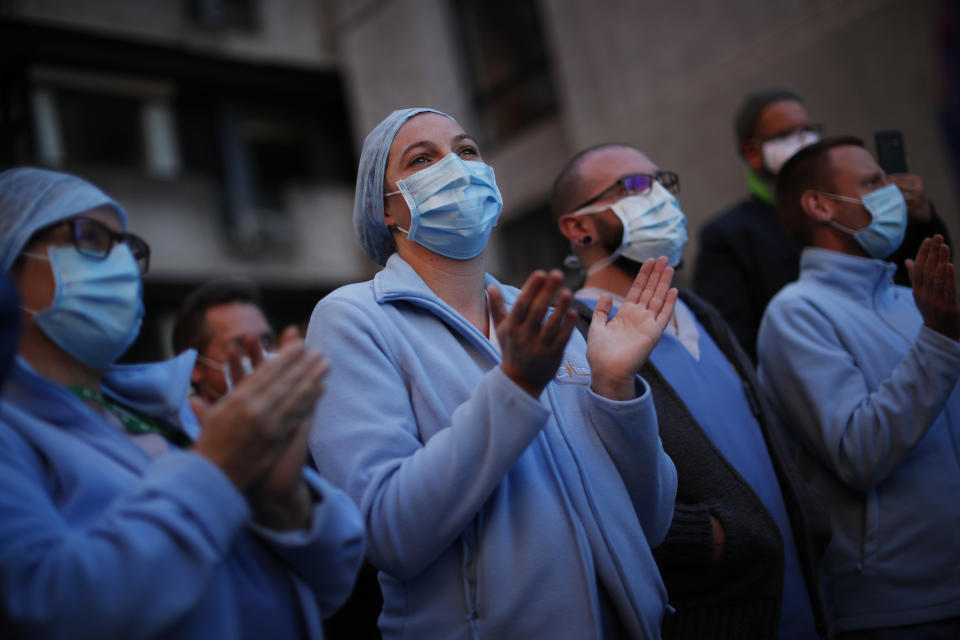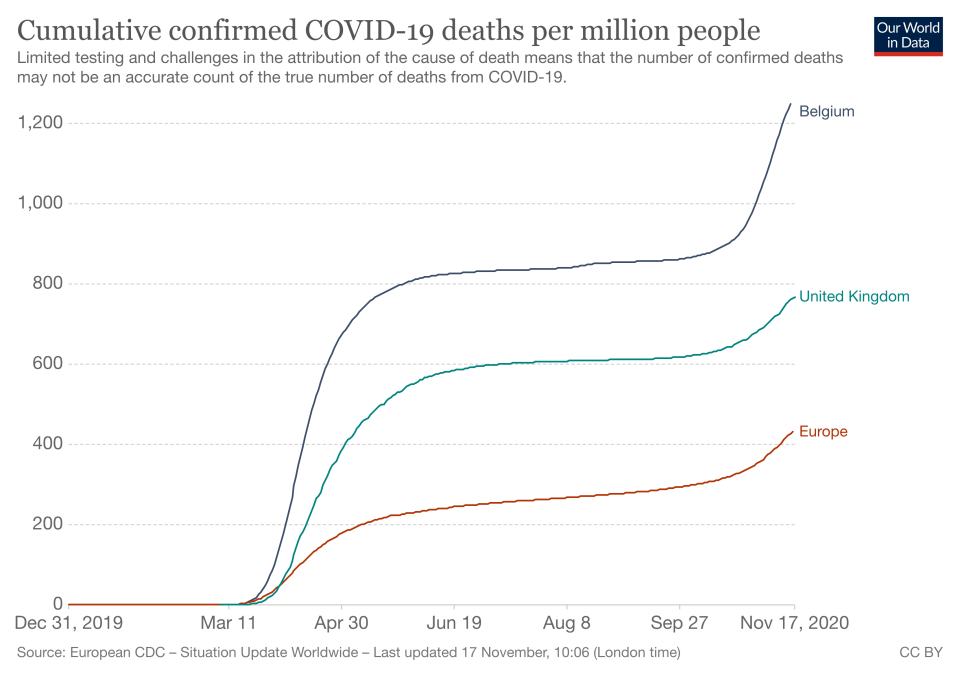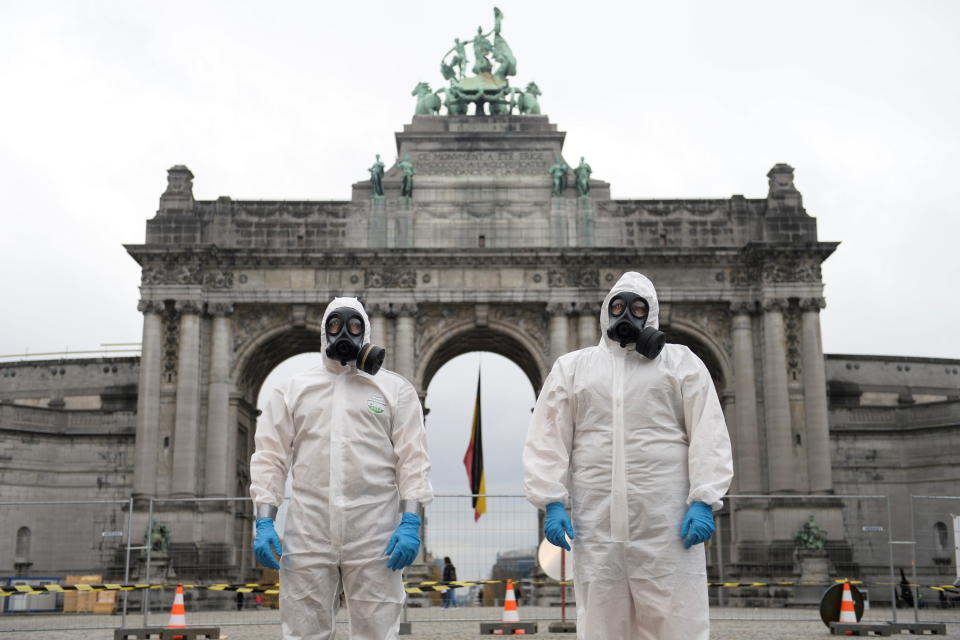COVID infections begin to stabilise in country with Europe’s worst death rate

The coronavirus infection rate has started to stabilise in the world’s worst-hit country for COVID-19 deaths.
Belgium is still the worst nation for coronavirus deaths per capita, but official figures published on Tuesday show its infection rate has slowed, indicating there is light at the end of the tunnel.
According to Sciensano, Belgium’s public health department which tracks COVID-19, fewer than 5,000 new daily cases were recorded on Monday.
On 30 October, daily cases peaked at more than 23,000 in Belgium, but this dropped below 10,000 on 7 November. On Sunday, 6,268 new cases were reported, but this fell to 4,659 on Monday.
According to Johns Hopkins University, there have been 14,616 deaths from COVID-19 in Belgium and more than 537,800 cases.
With a population of 11 million, Belgium has regularly been top of the world’s worst-hit countries for coronavirus deaths per head.
Johns Hopkins figures show Belgium has had 127 deaths per 100,000 people – the highest rate in the world – compared to 78 per 100,000 for the UK, the ninth worst-hit.
However, case numbers are falling – an average of 4,911 people tested positive for COVID-19 per day in the week between 7 and 13 November, a 41% drop on the previous seven-day period.
Watch: Belgium returns to national lockdown
Sciensano said there were 807 infections per 100,000 people in the past two weeks, a 55% fall from the previous fortnight.
The number of patients being admitted to hospital with COVID-19 has also fallen, down 23% to 440 people between 10 and 16 November.

Belgium’s reproduction, or R rate, has dropped below 1 to 0.85.
A report published on Monday said Belgian nursing homes failed patients during the pandemic, as thousands of elderly people were left “abandoned” to die.
Belgium reimposed tight lockdown nationwide restrictions at the end of October, closing non-essential shops and insisting that people work from home where possible. Restaurants, bars and cafes had already been forced to close.

People gathering in public must limit themselves to groups of four or less, while supermarkets can only sell essential items and households are only permitted one visitor.
The restrictions will remain in place until the middle of December.
Scientists believe Belgium was hit so hard by coronavirus for a number of reasons – geographically, it sits next to France, Germany and the Netherlands and it is difficult to monitor people’s movements between countries.
Its capital, Brussels, is at the centre of Europe’s political community, meaning a constant flow of travellers in and out of the country, while it also has a high population density.
Watch: What is long COVID?
Coronavirus: what happened today
Click here to sign up to the latest news and information with our daily Catch-up newsletter

 Yahoo Finance
Yahoo Finance 

